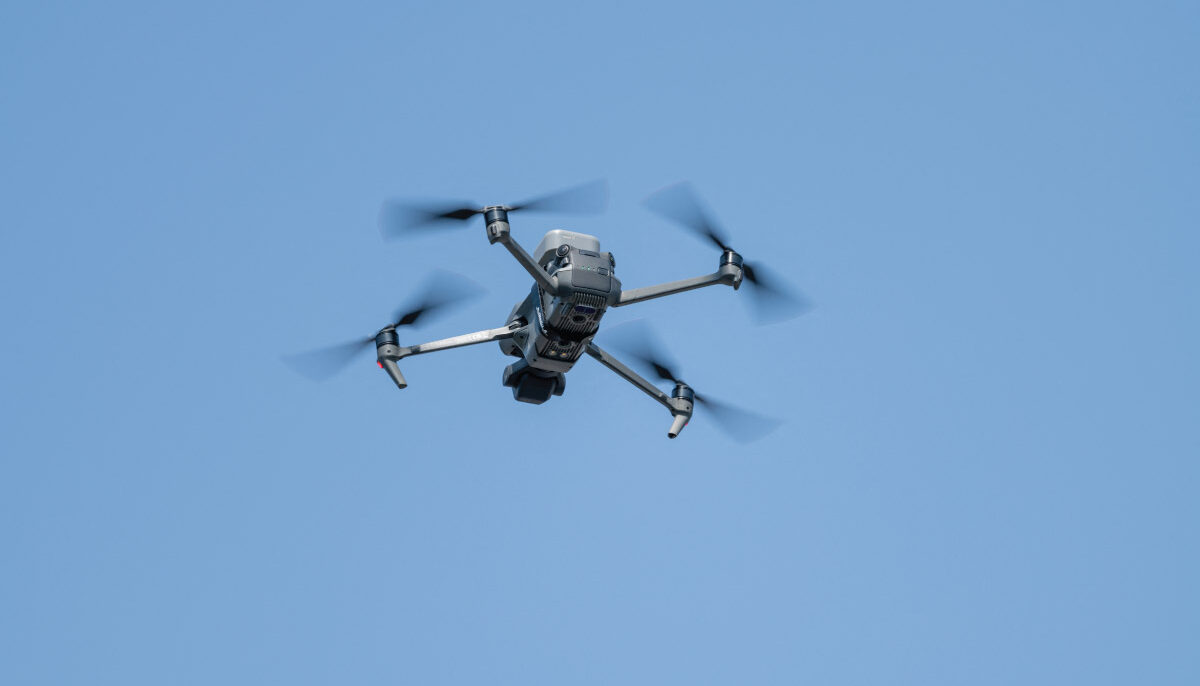After shooting the celebrations for the Feast of the Assumption of the Virgin Mary at the Jezzine Municipality, photographer Rami Rizk received a call restricting his use of drone photography.
The municipality imposed a new rule to obtain a permit and hands over all media captured by the drone within the municipal boundaries. The first condition was formalized in Municipal Decision No. 883, which stated that drones cannot be used without prior written permission.
This decision sparked a wave of both support and criticism across social media. People were asking: Does the municipality, or any other body, have the authority to impose such permits? Is the municipality itself allowed to use drones to ensure security in the town, as it does, or does that constitute a violation of privacy? Which legal framework actually governs drone usage in Lebanon?
Concerns over arbitrary permits
“The authority to issue permits does not lie with the municipality, but rather with the Lebanese Army,” explained criminal law specialist Itaf Qamar Al-Din to SMEX.
“There is an established procedure for obtaining a filming permit using a small drone (flying cam) where the applicant submits a written request and a set of documents.”
At the same time, the Lebanese Army’s power to issue permits without clear rules or standards could easily be abused whether by the army, the municipality or any other authority.
Article 47 of Legislative Decree No. 118/1977 stipulates that “any activity of a public nature or benefit within the municipal boundaries falls under the jurisdiction of the municipal council.”
Can this article be used to justify Jezzine Municipality’s decision? Qamar Al-Din says that the municipality has “no such authority,” noting that “this article cannot be used to transfer such powers to municipalities.”
“If someone obtains a firearms license from the Ministry of Defense, the municipality cannot require them to obtain another license to enter the town,” Qamar Al-Din added.
She also pointed out that the criteria Jezzine Municipality intends to adopt remain unclear, which could turn the licensing requirement into a tool for settling family, political, or electoral disputes in the town.
Moreover, the municipality’s requirement that photographers hand over their data amounts to exploitation, since photographers invest both effort and money to obtain a photo or video, and it makes no sense for them to surrender their work to the municipal council for free.
Municipalities violating privacy with drones
Several videos have circulated showing people in intimate situations in their private spaces filmed by drones. In July, Fanar Municipality published a video on TikTok showcasing its use of new drone technology to monitor the town, raising questions about whether this step aligns with the right to privacy.
“There is no explicit provision in the Municipal Law that gives municipalities the right to conduct aerial photography or monitor individuals using drones,” Qamar Al-Din said.
“Regarding breaches of privacy, meaning filming for purposes other than those stated in the permit, or at an unauthorized altitude, or without a permit, if such actions are carried out by municipalities, and since a municipality is a public legal entity, its conduct in this case becomes an unlawful administrative act (surveillance without a legal basis).”
“Challenges to such actions fall under the jurisdiction of the State Shura Council, where any affected citizen has the right to file an annulment case against the municipality’s decision to use drones,” Qamar Al-Din added.
Egypt’s laws governing drone use
Regardless of whether a permit is obtained or not, the use of drone-generated photos and videos has its own legal framework when it comes to protecting privacy. Qamar Al-Din notes that under Lebanese criminal law, there is no specific provision that penalizes photographing individuals in private spaces, unlike French legislation, such as Article 226-1 of the French Penal Code.
“Prosecution can be pursued on the basis of Law No. 81/2018 concerning the collection, processing, and disclosure of personal data (including photos that reveal a person’s identity),” according to Qamar Al-Din. “Compensation for damages can also be sought under civil liability rules before the relevant civil court.”
While Lebanon lacks clear and explicit legislation governing the use of drones, some Arab countries have enacted specific laws for this purpose, though these tend to be highly restrictive.
In Egypt, Law No. 216 of 2017 was issued to regulate the use, circulation, and trade of drones operated mechanically or remotely. Article 2 of the law prohibits “state administrative units, including ministries, departments, agencies, local administration units, public bodies, companies, and other public or private legal entities, as well as individuals, from importing, manufacturing, assembling, circulating, possessing, or using drones without prior authorization from the competent authority.” The responsible authority in this case is the Ministry of Defense.
The Egyptian law is particularly severe in punishing violators. Article 3 stipulates that “anyone who imports, manufactures, assembles, circulates, possesses, trades, or uses drones without authorization from the competent authority shall be punished by imprisonment for no less than one year and no more than seven years, and by a fine of no less than 5,000 Egyptian pounds and no more than 50,000 Egyptian pounds, or by either of these two penalties.”
Drone categories in the European Union
At the international level, European Union drone regulations, in force since 2020, classify drone use into three main categories according to risk level. The aim is to ensure flight safety, protect privacy, and harmonize rules across the EU.
The first category is the “Open” category, which applies to low-risk flights. It does not require prior authorization, sets a maximum flight altitude of 120 meters, and is subdivided into classes (C0–C4) that define technical requirements for the drones themselves. It also allows for certain exceptions, such as flying over residential properties with the owner’s permission.
The second category is the “Specific” category, which covers medium-risk flights not included in the Open category. These flights require prior approval from the national aviation authority.
Finally, the “Certified” category applies to high-risk flights, such as transport operations. This category requires drones to be operated by certified companies, with licensed pilots and certified aircraft.
SMEX stresses the importance of drone users avoiding capturing photos, videos, or any data that identifies individuals without their explicit consent, and of respecting applicable laws and regulations, especially in private spaces or residential areas. Failure to comply may constitute a violation of privacy.
SMEX also calls for the adoption of a clear and specific privacy law to protect citizens from such violations, whether committed by individuals, institutions, or even security and official bodies.



